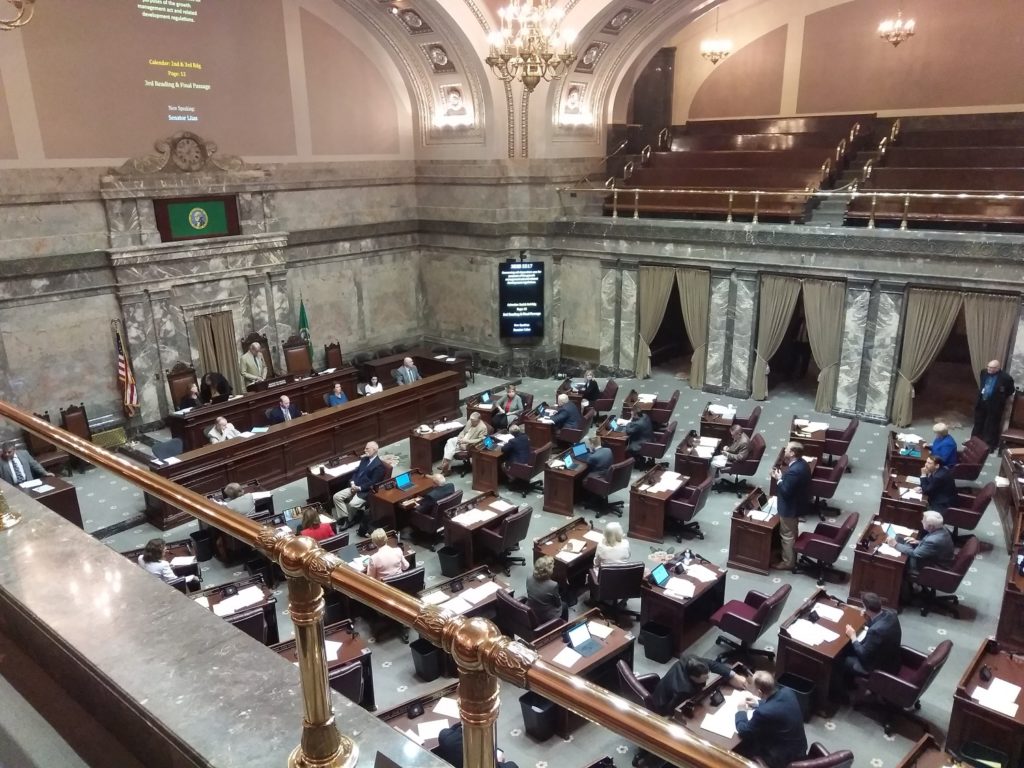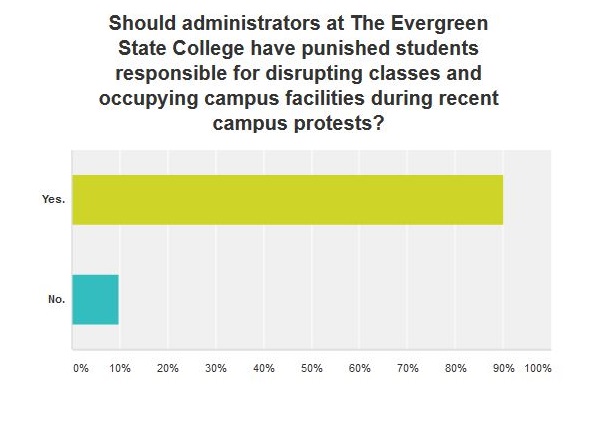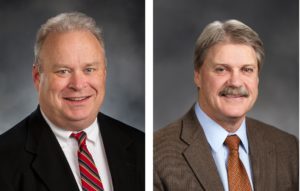The following newsletter was sent to subscribers to Sen. Padden’s Report From Olympia, June 29, 2017. To subscribe to Sen. Padden’s newsletters, click here.
High drama in Legislature’s final days
Dear friends and neighbors,
After months of work, negotiators for the Senate and the House announced Wednesday they have reached an agreement in principle on the state budget. This is the news we all have been waiting for, meaning we may be days away from finishing our work in Olympia for the year. It also means we may be able to pass a budget before midnight on June 30, when a new fiscal year begins, allowing us to avoid disruption to state services.
We’ll get a full briefing on the proposal today, but already there are indications the compromise will include elements that are difficult to swallow — dramatically higher spending, a larger state bureaucracy, and others. Each of us will have to weigh our votes carefully and consider the effect on the people of our districts, on small business and job growth. These are critical issues for the 4th Legislative District, and I will reserve judgment until I see the final package.
Numerous other issues also will be decided within the next 48 hours. Our Department of Corrections reform bill is one of several measures we hope to pass before adjournment. Hirst remains a major problem – the Senate advocates legislation that would overturn a misguided Supreme Court decision that makes it difficult, if not impossible, for rural property owners to drill new wells. The House so far has refused to take action or offer a reasonable counterproposal. Also undecided is the fate of the capital construction budget. So stay tuned – the next couple of days in Olympia will be a matter of high drama.
Sen. Mike Padden
Riding like MADD in Yakima
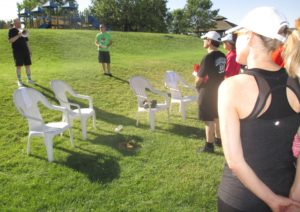
Discussing this year’s victory and next year’s challenges on impaired driving legislation at the MADD fund-raiser last weekend in Yakima.
It was my pleasure Saturday to join with advocates for Mothers Against Drunk Driving in Yakima for their annual “Bike, Walk, or Run Like MADD” fund-raiser. Among those who participated in the event in Sarg Hubbard Park were many of the families that helped lend support to our felony DUI legislation over the last three years in Olympia – Dale Panattoni, the Bartlett family, the Kester family, and others who have lost family members and loved ones. Together we scored a major victory in this year’s legislative session – we made the 4th DUI a felony in Washington state. About 100 people turned out for the event, in many ways a celebration of what we have accomplished, and a recognition there is much more to do.
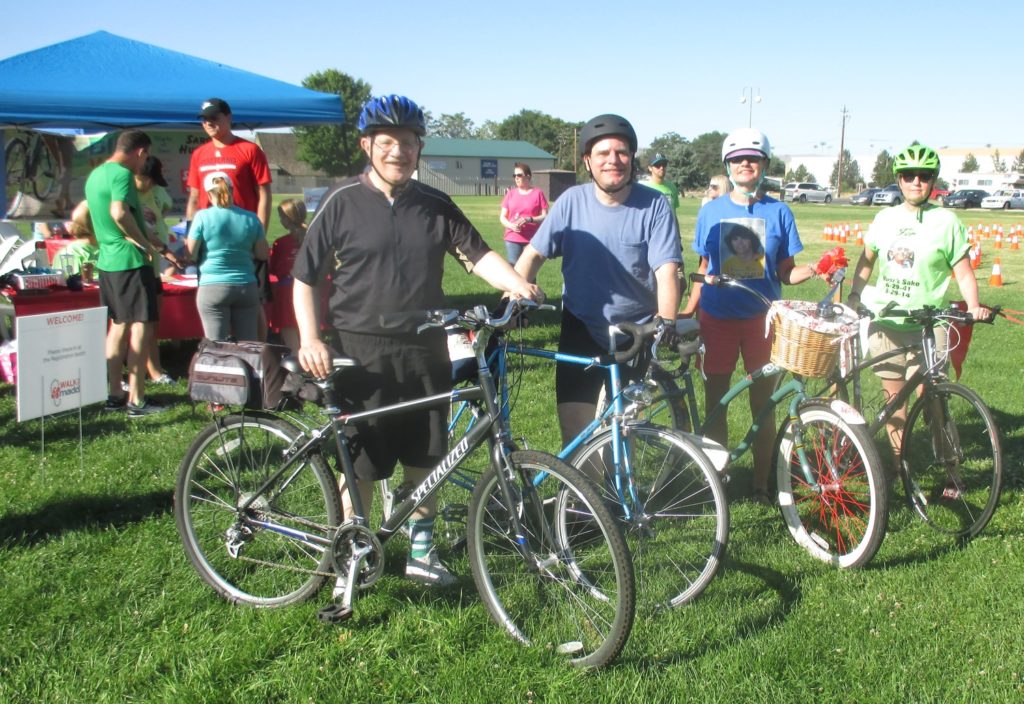
Several of us showed our support for MADD by joining in the 12K bicycle ride. To my left is Senate public information officer Erik Smith.
Your view: Campus disruptions at The Evergreen State College
In last week’s newsletter, we asked your thoughts about the recent turmoil at The Evergreen State College in Olympia. Protests, confrontations between students and faculty, vandalism and threats of violence led to the school’s closure for several days this month. In a work session last week, the Senate Law and Justice Committee learned that the administration’s weak and ineffectual response to an earlier student disruption, in January, may have emboldened the protesters who followed. Ninety percent of readers agreed the administration should have punished students who crossed the line.
In the news: Blunt talk about Hirst
Negotiations between the Senate and the House on the household well issue have reached a point where it is uncertain whether an agreement will be reached before the end of this year’s legislative session. If the Legislature fails to act, the consequences will be felt by thousands of families who invested in rural property in good faith, assuming they would be able to obtain water.
Last fall’s decision by the state Supreme Court in the Hirst case overturned decades of water law that made it easy for rural property owners to drill small, family-sized wells. Under Hirst, property owners will have to obtain costly studies to determine whether their proposed wells impair existing water rights or water set aside in streams and waterways for the passage of fish. County officials in some areas have already said they lack the ability to evaluate these studies and have stopped granting development permits. The court decision amounts to a de facto moratorium on rural development, and the effect on our state will be dramatic – not to mention the effect on the individuals who will be directly impacted.
Two op-eds published in the last week offer sage insight on the issue. One, from state Rep. Jim Walsh, R-Aberdeen, published in The Daily News of Longview, argues that the court decided the issue improperly. Walsh writes:
The State Supreme Court’s Hirst decision—published last fall—is poorly written, poorly reasoned and has caused job-killing uncertainty in Washington’s real estate and construction industries. It overturns decades of legal precedent and commercial practice, calling into question whether permit-exempt residential wells are actually exempt from permits.
This is bad. It’s especially harmful to rural parts of the state, which rely on wells.
Good news: The legislature has a bill that can fix the trouble caused by Hirst. State Sen. Judy Warnick’s SB 5239 clears up the confusion and states clearly that residential permit-exempt wells are just that: exempt from permits. No meters, no excessive permitting expenses.
Another op-ed, published in Washington State Wire by Sen. Tim Sheldon, D-Potlatch, points out that Democratic stubbornness on the issue reflects the party’s dominance by urban environmental interests who have been trying to throttle rural development for years. Sheldon says a failure to act could have severe consequences for the state’s last remaining rural Democrats:
There aren’t many of us left, and the way things are going this year, our line may die out with the present generation. A single issue, the state Supreme Court’s misguided Hirst decision, may well determine whether our children will ask, in places like Shelton, Sequim, Aberdeen, Longview, Port Angeles, Issaquah and other small cities around the state, “Mama, what was a Democrat?”
I pity the poor mother who will have to answer, “They’ve got one on display at the county museum.”
My party is reacting with indifference to one of the biggest crises rural Washington has ever faced, and this one has our extinction written all over it. But that’s really a small concern compared to the looming disaster for the state’s rural economy and the hardship it will wreak on thousands of families. Hirst threatens them with bankruptcy and shattered dreams, and those who survive, in small towns across the state, will struggle under the burden of dramatically higher property taxes. All in the name of hard-hearted urban political ideology.
…Democrats who represent rural areas and fail to take a stand for the people they serve will likely find their days are numbered, and risk ending up on exhibit at the county museum in a dusty glass case.
Contact us
If you have a question or concern about state government, please do not hesitate to contact our office. We are here to serve you!
Phone: (509) 921-2460
Street address: 11707 East Sprague Ave., Suite 305, Spokane Valley, WA 99206
Email address: Mike.Padden@leg.wa.gov











